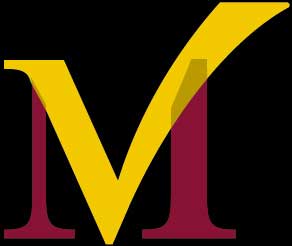The Campaigns of Alexander
[1] “Destiny had decreed that Macedon should wrest the sovereignty of Asia from Persia, as Persia once had wrested it from the Medes, and the Medes, in turn, from the Assyrians.” [p. 111]
[2] “Our enemies are Medes and Persians, men who for centuries have lived soft and luxurious lives; we of Macedon for generations past have been trained in the hard school of danger and war. Above all, we are free men, and they are slaves.” [p.112]
[3] “When received the report that Alexander was moving forward to the attack, he sent some 30,000 mounted troops and 20,000 light infantry across the river Pinarus, to give himself a chance of getting the main body of his army into position without molestation. His dispositions were as follows:
in the van of his heavy infantry were his 30,000 Greek mercenaries, facing the Macedonian infantry, with some 60,000 Persian heavy infantry- known as Kardakes.” [p.114]
[4] [Book II – Battle of Issus] “Darius’ Greeks fought to thrust the Macedonians back into the water and save the day for their left wing, already in retreat, while the Macedonians, in their turn, with Alexander’s triumph plain before their eyes, were determined to equal his success and not forfeit the proud title of invincible, hitherto universally bestowed upon them. The fight was further embittered by the old racial rivalry of Greek and Macedonian.” [p.119]
[5] “The cavalry action which ensued was desperate enough, and the Persians broke only when they knew that the Greek mercenaries were being cut and destroyed by the Macedonian infantry.” [p.119-20]
[6] “The same painstaking attention to details is evident in administrative matters. Appointments of governors are duly mentioned, and throughout his book Arrian is careful to give the father’s name in the case of Macedonians, e.g. Ptolemy son of Lagus, and in the case of Greeks their city of origin.” [p.25]
[7] “In the spring of 334 Alexander set out from Macedonia, leaving Antipater with 12,000 infantry and 1,500 cavalry to defend the homeland and to keep watch on the Greek states.” [p.34]
[8] “The backbone of the infantry was the Macedonian heavy infantry, the ‘Foot Companions’, organized on territorial basis in six battalions (taxeis) of about 1,500 men each. In place of the nine-foot spear carried by the Greek hoplite, the Macedonian infantryman was armed with a pike or sarissa about 13 or 14 feet long, which required both hands to wield it. The light circular shield was slung on the left shoulder, and was smaller than that carried by the Greek hoplite which demanded the use of the left arm. Both, Greek and Macedonian infantry wore greaves and a helmet, but it is possible that the Macedonians did not wear a breastplate. The phalanx (a heavy infantry), like all the Macedonian troops had been brought by Philip to a remarkable standard of training and discipline.” [p.35]
[9] Modern Greeks, have used this particular passage as evidence of Alexander’s greekness. Alexander sent to Athens, as an offering to the goddess Athena, 300 full suits of Persian armor, with the following inscription:
“Alexander, son of Philip, and the Greeks (except the Lacedaemonians) dedicate these spoils, taken from the Persians who dwell in Asia.” [p.76]
J.R. Hamilton, Associate professor of Classics and Ancient History from the University of Auckland, New Zealand, writes: ‘In view of the small part that the Greeks had played in the battle the inscription (with its omission of any mention of the Macedonians) must be regarded as propaganda designed for his Greek allies. Alexander does not fail to stress the absence of the Spartans.’
[10] Alexander’s rationale as to why he would not like to engage the Persian fleet in a battle:
“In the first place, it was to rush blindly into a naval engagement against greatly superior forces, and with an untrained fleet against highly trained Cyprian and Phoenician crews; the sea, morever, was a tricky thing – one could not trust it, and he was not going to risk making a present to the Persians of all the skill and courage of his men; as to defeat, it would be very serious indeed and would affect profoundly the general attitude to the war in its early stages, above all by encouraging the Greeks to revolt the moment they got news of a Persian success at sea.” [p.80]
[11] Alexander speaking to his officers: “…….But let me remind you: Through your courage and endurance you have gained possession of Ionia, the Hellespont, both Phrygias, Cappadocia, Paphlagonia, Lydia, Caria, Lycia, Pamphylia, Phoenicia and Egypt; the Greek part of Libya is now yours, together with much of Arabia, lowland Syria, Mesopotamia, Babylon, and Susia;………” [p.292]
[12] Alexander addressing his troops: With all that accomplished, why do you hesitate to extend the power of Macedon – your power – to the Hyphasis and the tribes on the other side? [p.293] Arrian, book 5.
[13] Alexander continues to address his troops: “Gentlemen of Macedon, and you my friends and allies, this must not be. Stand firm; for well you know that hardship and danger are the price of glory, and that sweet is the savour of a life of courage and of deathless renown beyond the grave.” [p.294]
[14] Alexander continues to speak to his Macedonians and allies: “Come, then; add the rest of Asia to what you already possess – a small addition to the great sum of your conquests. What great or noble work could we ourselves have achieved had we thought it enough, living at ease in Macedon,merely to guard our homes, excepting no burden beyond checking the encroachment of the Thracians on our borders, or the Illyrians and Triballians, or perhaps such Greeks as might prove a menace to our comfort.” [p.294] Arrian, Book 5.

Virtual Macedonia
Republic of Macedonia Home Page
Here at Virtual Macedonia, we love everything about our country, Republic of Macedonia. We focus on topics relating to travel to Macedonia, Macedonian history, Macedonian Language, Macedonian Culture. Our goal is to help people learn more about the "Jewel of the Balkans- Macedonia" - See more at our About Us page.
Leave a comment || Signup for email || Facebook |
History || Culture || Travel || Politics













